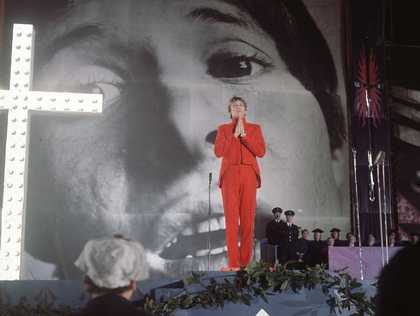Set in England as a coalition government assumes control ‘sometime in the near future,’ Privilege satirises swinging Britain, the rock world and their co-option by the Establishment. Starring pop idol Paul Jones and Sixties supermodel Jean Shrimpton as the girl who tries to help him flout the system, the film is a scathing social satire of the British state and the freedoms of youth culture in the face of rising totalitarianism.
In 1966, following the collapse of a film which I hoped to develop with Albert Finney’s production company, on the 1916 Easter uprising in Dublin, I was approached by John Heyman, a British artists’ agent, to make a film based on an original screenplay by Johnny Speight, which dealt with the influence of Steven Shorter, a pop star in the 1960s. American novelist Norman Bognor and I adapted the script, which we retitled Privilege, to emphasize the significance of Steven Shorter as an allegory for the manner in which national states, working via religion, the mass media, sports, Popular Culture, etc., divert a potential political challenge by young people. In case this theme appears exaggerated, it is important to keep in mind that it was set in the ‘swinging Britain’ of the 1960s, and was prescient of the way that Popular Culture and the media in the US commercialized the anti-war and counter-culture movement in that country as well. Privilege also ominously predicted what was to happen in Margaret Thatcher’s Britain of the 1980s - especially during the period of the Falkland Islands War.
Peter Watkins

